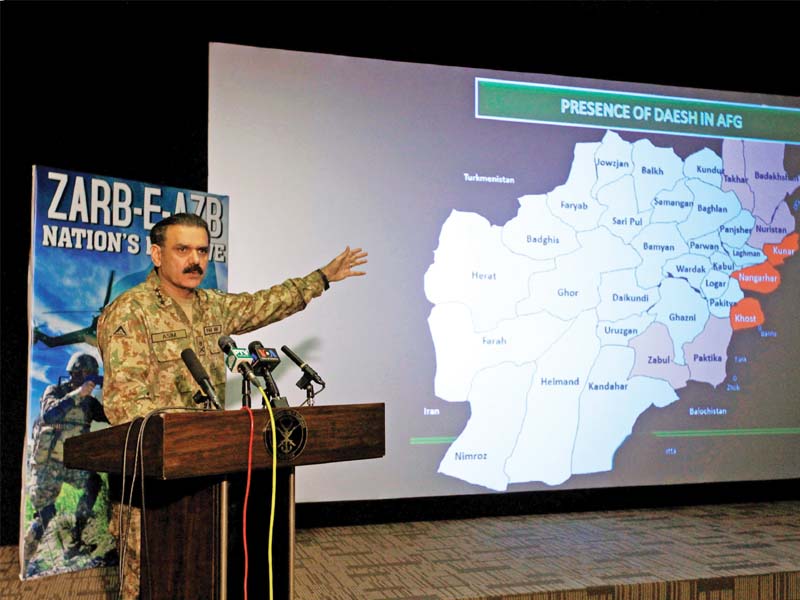
At a news briefing in Rawalpindi, the military’s chief spokesperson also for the first time gave a rare insight into how security agencies thwarted attempts by the Islamic State or Da’ish to make inroads in the country.
But the main thrust of Inter-Services Public Relations (ISPR) Director General Lt- Gen Asim Salim Bajwa’s almost two-hour long briefing to reporters was to send out a clear message that Pakistan was determined to go after all terrorist groups.
“We just want to give a message that we have zero tolerance for terrorism. We don’t want anyone to use our soil,” Bajwa said. “There are no good or bad Taliban,” he insisted. His strongly worded statement defending Pakistan’s anti-terror credentials was apparently a rejoinder to US Secretary of State John Kerry, who during his just-concluded visit to India, urged Pakistan to do more.
While acknowledging that Pakistan had made progress in the fight against extremism in recent months, Kerry asked Islamabad to push harder against militants hiding within its borders. "It is clear that Pakistan has work to do in order to push harder against indigenous groups that are engaged in extremist activities," Kerry said on Wednesday, the second day of a visit to India.
He said the United States had made it clear to Islamabad that it needs to act against groups such as the Haqqani Network and Lashkar-e-Taiba that are suspected of operating from Pakistan to launch attacks against its neighbors India and Afghanistan.
However, he also offered a word of support to Pakistan in what appears to be a balancing act in order not to annoy America’s key ally in the fight against terrorism.
"In fairness, the Pakistanis have suffered greatly from terrorism in their own country," Kerry said. "All of us need to be supportive and also understanding of how difficult it is to take it on step by step."
Without directly mentioning Kerry’s statement, Bajwa said Pakistan had done more than any other country in the fight against terrorism. “We have paid both human and financial cost. Our economy suffered losses of over $109 billion,” he said adding that the international community should recognise the country’s sacrifices. As many as 536 soldiers lost their lives in the operation Zarb-e-Azb, he added. Talking about successes against terrorist groups, Bajwa said Pakistan had successfully foiled attempts by Da’ish to establish a foothold in the country.
He said 309 people, including some Syrian, Iraqi and Afghan nationals linked to the Middle Eastern terrorist group, were arrested including the group’s Pakistan chief Hafiz Omar.
Bajwa said the group was involved in the killing of 15 security personnel as well as attacks on media houses in Faisalabad. He said it was planning major attacks on the Foreign Office and diplomatic enclave.
Reports of Da’ish attempts to make inroads in Pakistan have been making rounds for some time but this is the first time the army publicly acknowledged the extent of these bids.
When asked to comment on reports of Da’ish involvement in the recent Quetta attack, Bajwa said investigations suggested that the group just took the responsibility for glorification.
Giving updates on Operation Zarb-e-Azb, he said security forces had successfully driven terrorists out of North Waziristan, which was once considered the ‘epicentre’ of terrorism. He said operation in Khyber Agency proved more challenging because of snowy mountains. He said the agency was home to hideouts from Afghan war and the region had a very high density of Improvised Explosive Devices (IEDs).
Bajwa said normalcy is returning to the tribal areas after the successful completion of the military operation. He said 64% of the temporarily displaced persons (TDPs) had returned to their homes while the rest of them would be repatriated by the end of this year. Talking about Shawal Valley, which was once the stronghold of local and foreign militant groups, he said it was now like a Switzerland.
Bajwa said Pakistan took all stakeholders, including Afghanistan and the US, into confidence before starting Zarb-e-Azb, hoping they would take appropriate steps against terrorists fleeing across the border. “But unfortunately no action was taken on the other side of the border,” he said.
The ISPR DG said border management was one of the key planks of Pakistan’s counterterrorism strategy. He said Pakistan would enforce the new border controls it had introduced at Torkham at all 18 crossing points between the two countries.
Bajwa dismissed the impression that security forces had not taken action against militant groups in Punjab with same intensity as they did in other parts of the country. More than 21000 IBOs were carried out across the country, 9,000 of them in Punjab, he said. He said security forces on Thursday apprehended hardcore terrorists including two key al Qaeda figures from Faisalabad in special combing operation.
Published in The Express Tribune, September 2nd, 2016.

















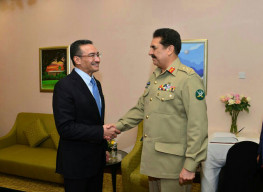


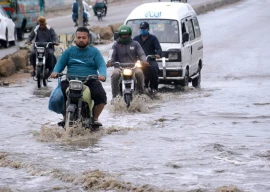














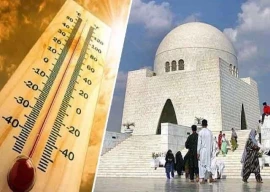
-(1)1714378140-0/AliAminMaryam-(4)-(1)1714378140-0-270x192.webp)
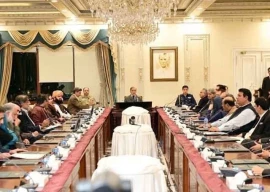
1714370039-0/ojwilson-(1)1714370039-0-270x192.webp)







COMMENTS
Comments are moderated and generally will be posted if they are on-topic and not abusive.
For more information, please see our Comments FAQ